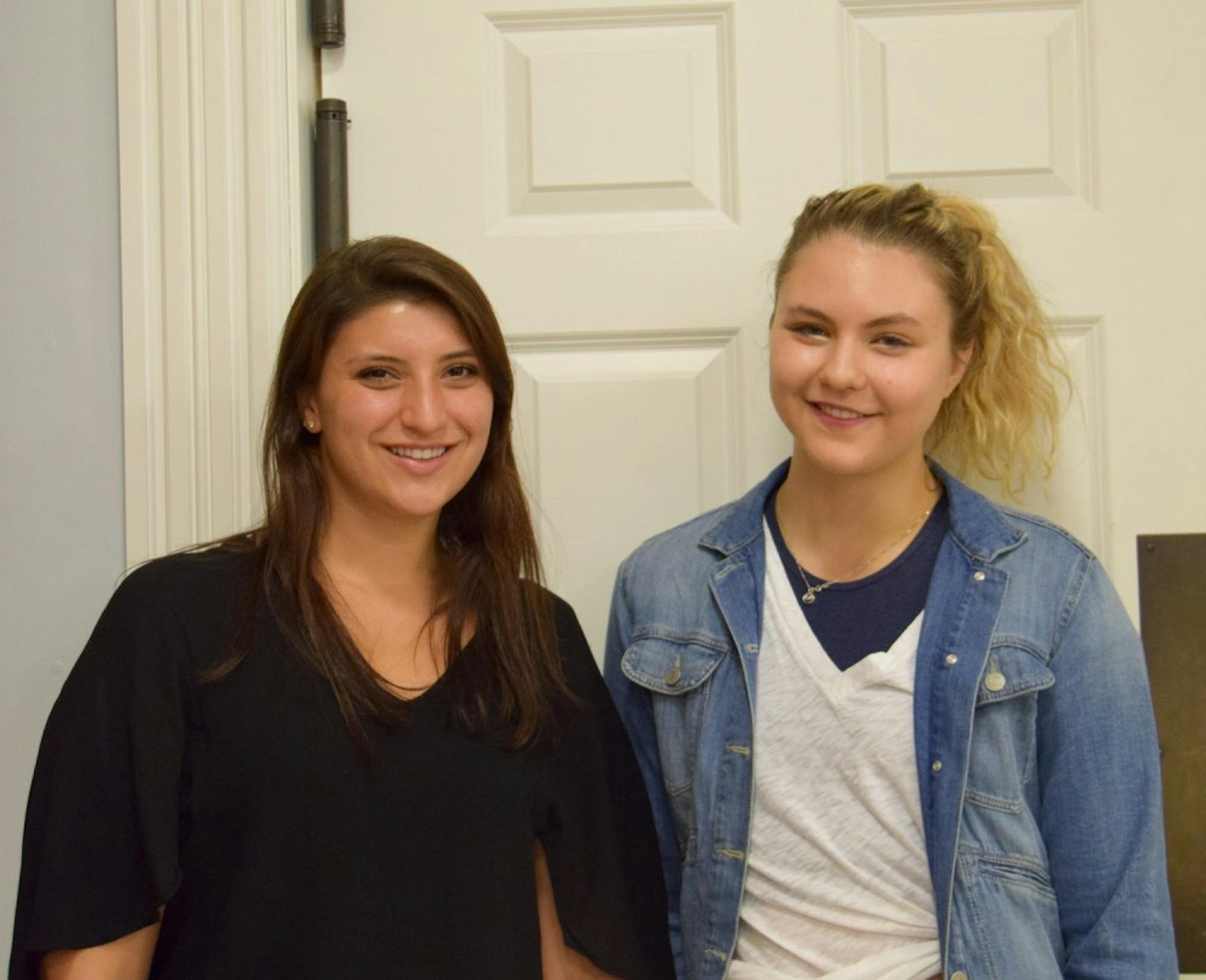After two runs as part of V-February in 2014 and 2015, the original student performance “Voices” returned to campus as “VoX: Voices of Summer” on Monday in Collis Common Ground. The production, sponsored by the Center for Gender and Student Engagement, featured a series of monologues and poetry written and performed by members of the class of 2017 on topics ranging from racial identity and feminism to body image, mental health and personal relationships.
Directors Kalie Marsicano ’17 and Jessica King Fredel ’17 held auditions at the start of term and led rehearsals with the cast of 21 performers throughout July and early August. Unlike “Voices,” which the pair co-directed this past February, “VoX” was open to individuals of all gender identities who wished to share their stories.
“We wanted to foster dialogue between people of different genders,” Marsicano said, adding that the gender-inclusivity of this summer’s production allowed for those who identify outside of a male-female binary to participate.
Marsicano also noted that while some monologues performed in the V-February production are submissions, performers in “Vox” read only their own original pieces.
Several cast members cited a desire to form new relationships with other Dartmouth students as their motivation for getting involved.
Cast member Gabrielle Bozarth ’17 said that being a part of “Voices” during her freshman winter allowed her to branch out and meet people outside of her established social groups. Through “VoX,” she has found a similar sense of community.
“[The cast] set the tone from the beginning that you can share, you can laugh, you can cry.” Bozarth said. “I’ve never met a more open group of people.”
Bozarth’s piece “Black Woman Love” was her take on the racial dynamics of dating, emphasizing the power of self-love.
Nick Moolenijzer ’17 said that he got involved with “VoX” to share his story alongside friends and classmates.
“I knew [the cast] would have really powerful things to say, and I wanted to experience that with them,” Moolenijzer said. He read two poems focused on romantic love at the College and male body-image.
Moolenijzer said that sharing his pieces with the audience helped him feel a greater connection with the Dartmouth community, a sentiment echoed by other members of the cast.
“You don’t get many opportunities to share yourself in that way,” Doug Phipps ’17 said, another performer. “And I think it’s important for the Dartmouth community to hear other people’s stories and try to understand them.”
After performing his monologue “On Being Fat in Suburban Connecticut,” Phipps said that he felt more comfortable on campus.
“It’s nice to know that a large part of my past is now out there,” he said.
Phipps noted that, since his primary social outlets on campus are all-male organizations, “VoX” allowed him to engage with a more diverse set of experiences.
Corinne Kasper ’17, whose monologue was centered on her tribe’s blood-quantum enrollment policies, emphasized that “VoX” gave her a platform to speak publicly about an important aspect of her identity.
“I wanted to talk about being an Indian, so I did,” Kasper said.
Kasper said that this subject, and other similar subjects, do not often come up in casual conversation.
“What I wrote about is something that I came to terms with a long time ago, but I think I just wanted people to know,” she said.
An estimated 250 students turned out to watch “VoX.” Each speaker’s performance was punctuated with applause, snaps and shouts of encouragement.
“I was excited to see how many people came,” Moolenijzer said. “The size of the crowd made [performing] more scary, but it was really impactful to see how much Dartmouth students care about other people’s experiences.”
Moolenijzer also mentioned the importance of audience members hearing the performers speak about issues that they themselves could be facing.
Sam Parker ’15, a member of the audience, said she was impressed by the level of unity displayed by the sophomore class, adding that few spaces on campus provide such a supportive environment for students to be vulnerable.
Catherine Hastings ’17, who also attended the performance, said she was struck by the way the performers took control of their experiences.
“[VoX] is a great platform for people to have others see them in a way that makes them happy to share their stories on their own terms,” Hastings said.
In discussing the goals of the production, Marsicano emphasized the importance of generating campus dialogue.
“I hope people were entertained, but moreover, I hope that it answered some questions as well as sparked some questions for people and created a more accessible way to engage in conversations about race, ethnicity, gender and identity in general,” Marsicano said.
The VoX Committee hopes that students will continue to engage with this type of dialogue by attending the Voices of Summer panels that accompany the main performance.
Marsicano is a member of The Dartmouth staff.




